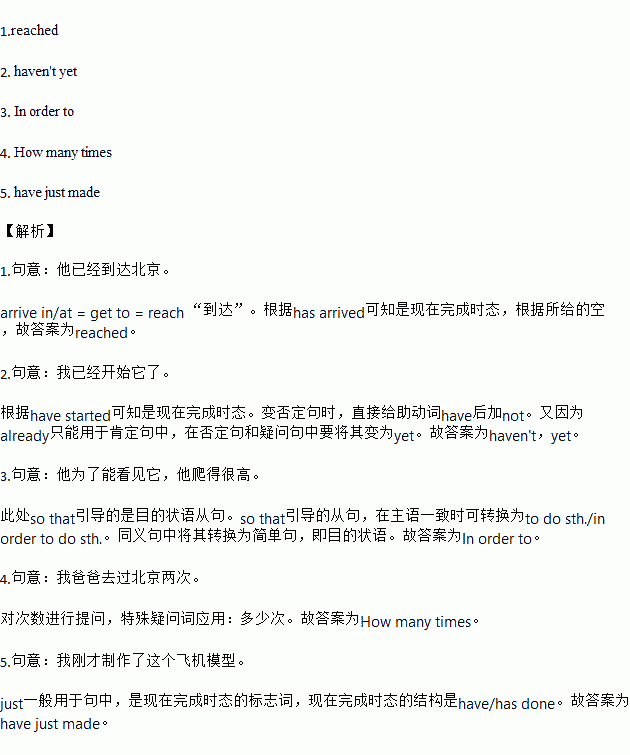题目内容
句型转换
1.He has arrived in Beijing.(改为同义句)
He has ________ Beijing.
2.I have already started it.(改为否定句)
I ________ started it ________.
3.He climbed higher so that he could see it.(改为同义句)
________ ________ ________ see it,he climbed higher.
4.My father has been to Beijing twice.(对画线部分提问)
________ ________ ________ has your father been to Beijing?
5.I made this model plane just now.(用just改写句子)
I ________ ________ ________ this model plane.
练习册系列答案
相关题目

